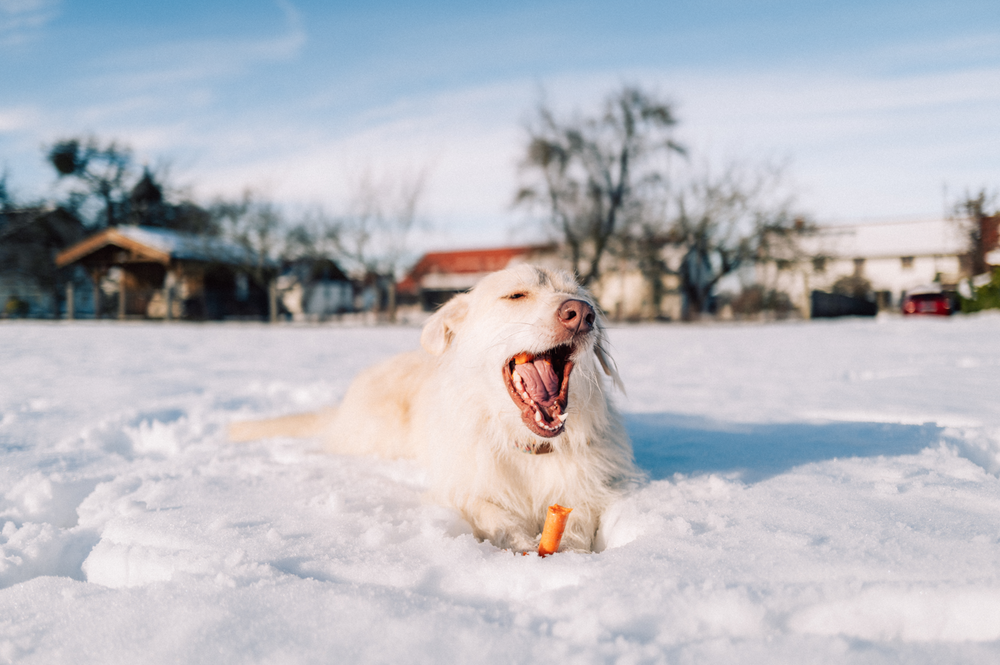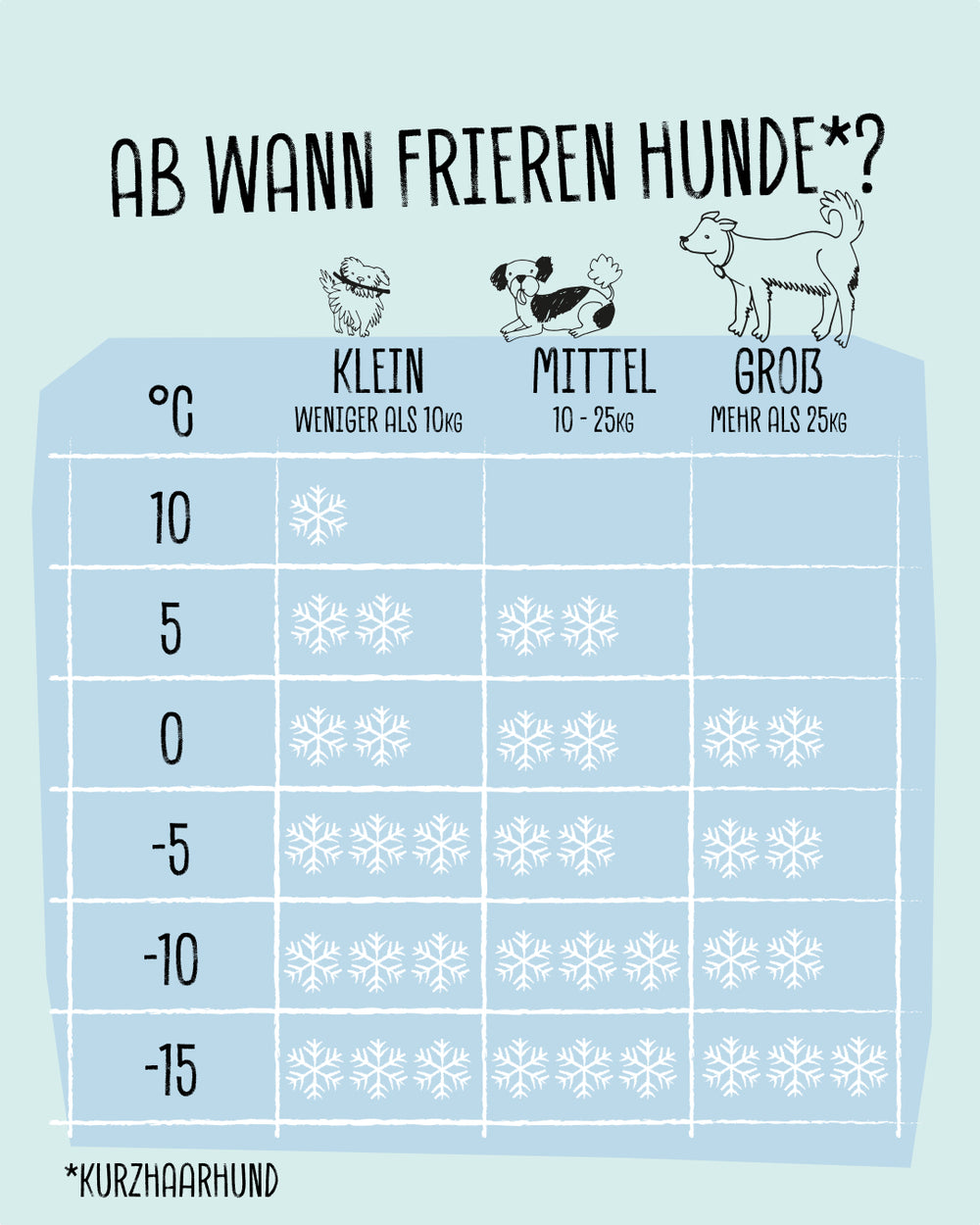
Tips for your dog in winter | VEGDOG
Winter enchants us with snowy landscapes, long walks and cozy hours of cuddling. But as beautiful as the cold season is, it also brings some challenges for dogs and their owners. Here are our best tips on how you can enjoy the frosty days safely and healthily!
 Author: Alena Thielert
Author: Alena Thielert
 Proofreader: Carla Steffen
Proofreader: Carla Steffen
Updated: 18.11.2024
Published: 15.11.2024
Don't forget to care for your paws
In winter, the paws are particularly stressed. Snow and ice can get stuck between the pads of the toes and form painful lumps. After every walk, you should rinse your dog's paws and, if necessary, apply a special paw balm . For long-haired dogs, it is also worth trimming the fur around the paws to prevent matting.
Your dog eats snow? – Be careful
Many dogs love to romp around in the snow - and that's a good thing! However, you should make sure that your dog does not eat snow, as this can quickly lead to stomach problems. The cold snow can irritate the mucous membranes of the stomach and, in the worst case, even lead to what is known as "snow gastritis". Road salt and other contaminants in the snow can also pose health risks.
Dog shoes for optimal paw protection in winter
In winter, your dog's paws are exposed to particular challenges. Dog shoes can therefore be useful in winter to protect your pet's sensitive paws from the cold, road salt and sharp ice. However, keep in mind that not every four-legged friend likes the feeling on their paws. Paw protection is practical, but not a must.

Winter coats for dogs: The right clothing for cold days
Extreme weather conditions are not only common in summer, but caution is also required in winter. Smaller dogs and those with short fur get cold more quickly, as do dogs without an undercoat. In cold, wet weather, a dog coat helps, which is particularly beneficial for older dogs with joint problems . A well-fitting winter coat protects your dog from cooling down and ensures that walks remain pleasant even on cold days. Waterproof models that reliably keep out moisture and wind are particularly suitable.
Can my dog stay in the car in winter?
Even in winter, it can be dangerous to leave your dog alone in the car for long periods of time. The car itself can cool down quickly, especially if it is not in the sun. To avoid health risks such as hypothermia, you should only leave your furry friend alone in the car for short periods of time or, ideally, take him with you when you leave the car.
Luminous collar for more safety in road traffic
During the dark season, walks are often only possible at dusk or in the dark. A luminous collar ensures that your dog is easily recognized by road users even in poor lighting conditions. The luminous or reflective elements ensure greater safety on your walks.
Strengthening the immune system
A strong immune system helps your dog to get through the winter healthy. Omega-3 fatty acids, such as those contained in our VISH OIL , not only support the immune system, but can also help with joint problems. Despite the tempting thought of "winter fat", you should keep an eye on your dog's weight. If you are often outside, a little extra snack can't hurt.
How to properly exercise your dog in winter
In the cold season, we often spend more time indoors. To ensure your dog still gets enough exercise and mental stimulation, plan small indoor games. For example, you could teach him new tricks to challenge him mentally. Retrieving and searching games in your own four walls also ensure that your dog stays fit and happy, even when it's icy outside.
Checklist for the winter walk
Before you go out: Does your dog need a coat? Are its paws protected? Take some water with you so you can rinse its paws on the way. In extreme temperatures, keep walks short and snuggle up somewhere warm afterwards.
Do you have any other winter tips? Share them in the comments!








